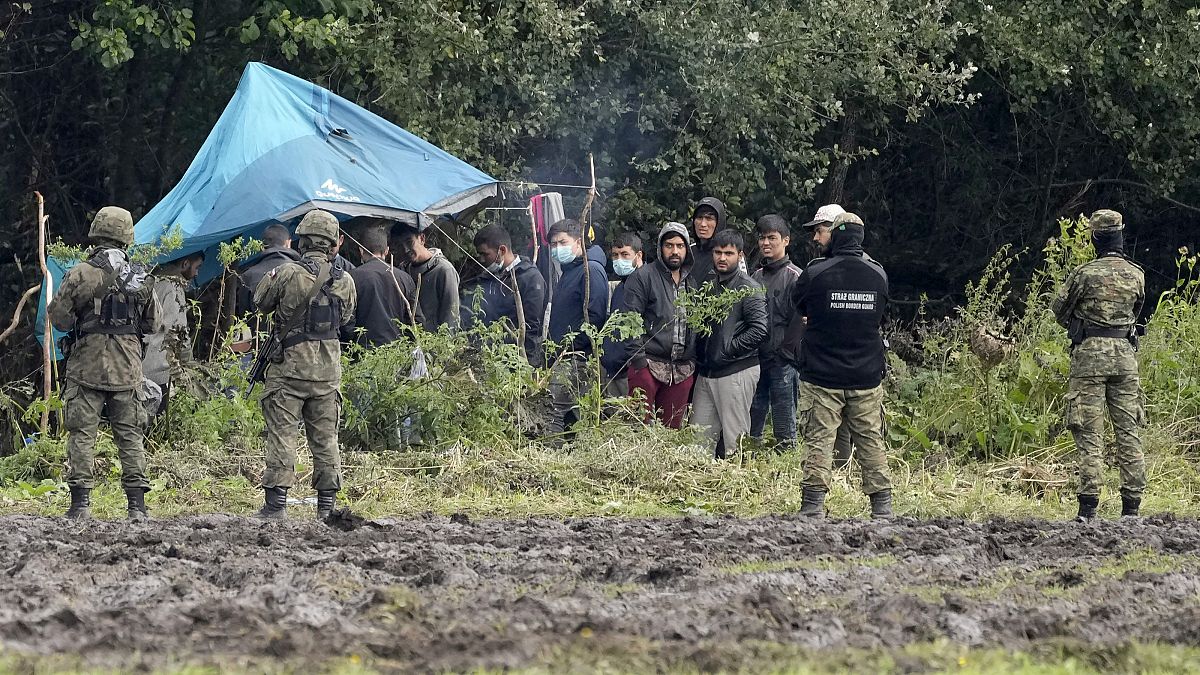A draft bill to construct the new border wall was approved by the opposition-dominated Senate in a second vote on Friday.
Poland's senate has approved a plan to build a €350 million wall along its border with Belarus to prevent migrants from illegally entering the country.
The upper house of parliament gave final approval to the proposed 100-kilometre border wall on Friday after a second vote.
President Andrzej Duda has said that he will immediately sign the law into effect following the vote result.
A draft bill to construct the new border wall was approved by the lower house of the Polish parliament on October 14. It had been backed a day earlier by the country's ruling conservative government.
Since August, thousands of migrants from the Middle East and Africa have tried to cross the Polish border from Belarus.
Belarusian leader Alexander Lukashenko is accused of ferrying people from several countries to the border to cause more problems for the EU.
Gerald Knaus, chairman of the European Stability Initiative (ESI), a European think tank developing policy ideas on southeast Europe, asylum policy, human rights, and democracy, thinks the situation is "extremely dramatic" and the premise of a "deadly humanitarian tragedy".
"What we've seen in recent weeks and this week in Poland is a new law that allows the violent pushback of people," Knaus told Euronews.
"We are dealing with a dictator on the Belarus side who's prepared to let people die at the border – to lure them to his country, to send them to the border. It’s freezing cold in the marshes and swamps and forests. He doesn’t let them retreat - and if the European Union then engages in violent and illegal pushbacks, people will be caught in between," he went on.
"This promises to be a deadly humanitarian tragedy that is going to get worse in the winter."
Knaus believes Lukashenko is prepared to put any kind of pressure on the European Union so the Polish strategy needs to be clear.
"The strategy cannot be a contest of brutality. What I would recommend, and really the only way I see it is that the European Union needs a partner, needs to find some other country that is prepared to help it counter the blackmail," he added.
"The European Union in return would need to offer such a partner serious support – there are democracies in eastern Europe that are themselves blackmailed at the moment, because of gas, by Gazprom and Russia. The European Union should help these countries massively, and in return these countries could help the European Union. This is about protecting human lives, protecting human dignity but also not giving in to a dictator."
Migration is an increasingly divisive issue in Europe and dozens of countries are calling for EU support to build more walls to stop the illegal crossings.
According to Knaus, the real problem is not the physical infrastructure, but what happens at those walls.
"Currently, the European Union is breaking its own laws, it’s breaking international conventions – not just on the Polish-Belarus border, also on the Croatian-Bosnian border, on the Hungarian-Serbian border, on the Greek-Turkish border. What we are seeing is a deep crisis of the rule of law, where the foundations of international law are being broken by the richest group of democracies in the world."
"The only way out of this is to find ways of humane control that can get majority support. But it is true that if it is not possible to find humane control, democracies will opt for violence – and that is tragic, dangerous, and not acceptable."
Watch the full interview with Gerald Knaus in the video player above.


